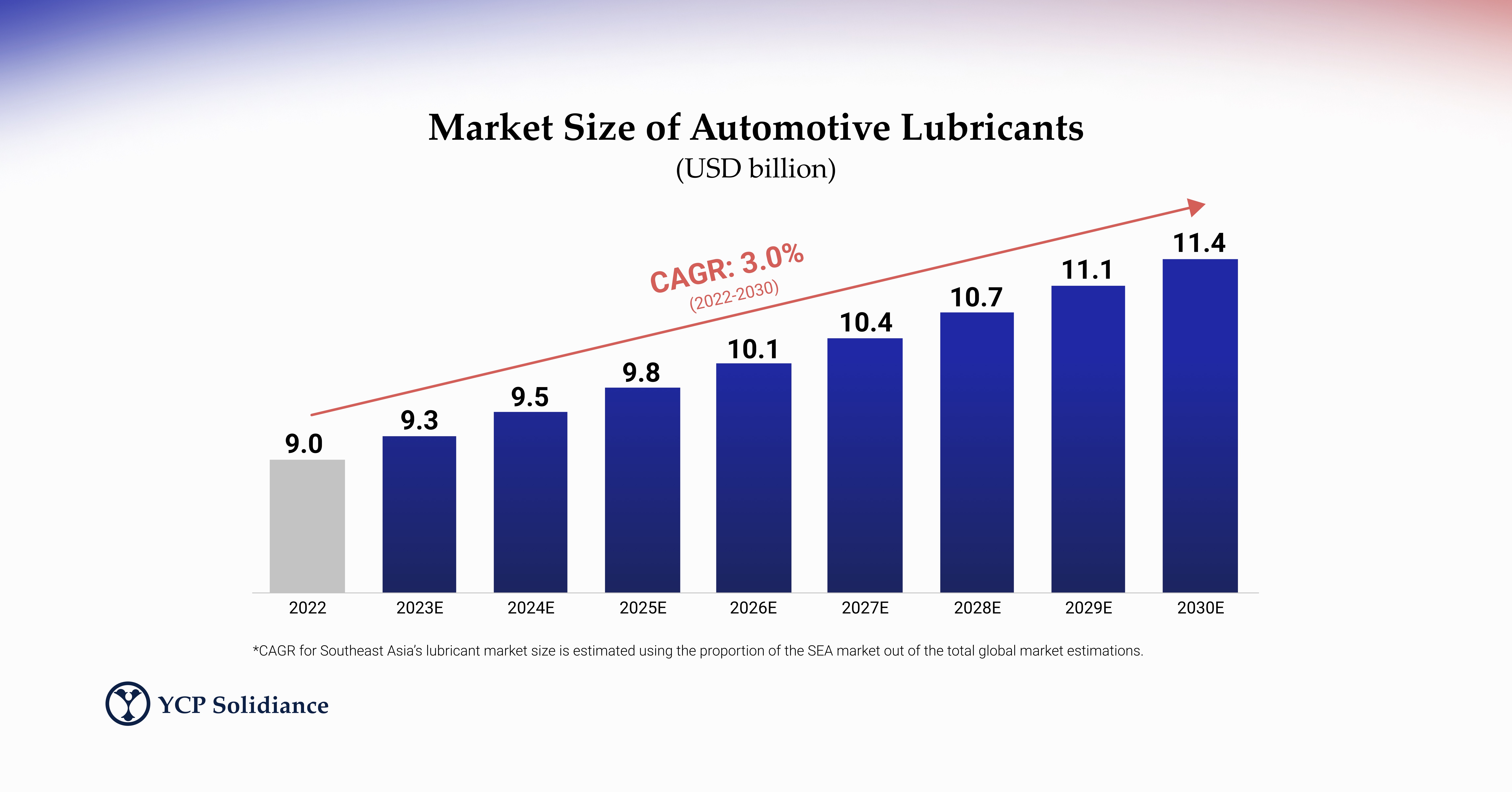The growth of the SEA automotive lubricants market is expected to surge with an estimated CAGR of 3%. The industry is driven by rapid industrialization, influx of passenger vehicle ownership, and strong traction in commercial vehicles requiring the reliance on efficient machinery and vehicles.
At the consumer level, the removal of government policies related to vehicle import taxes has had a beneficial impact on the market by lowering the prices of private vehicles. In Thailand and Singapore, consumers are placing a growing emphasis on quality, actively seeking lubricants that offer improved fuel efficiency, extended oil change intervals, and enhanced engine protection.
While in emerging economies like Indonesia, the Philippines, Malaysia, and Vietnam, markets are expected to transition to such lubricants as they are home to the fastest growing construction markets with infrastructure projects.

Digitalization in Automotive Lubricants
In order to compete and satisfy demand, global automotive lubricant players like Shell, Chevron, and Petronas are leveraging digital technology enablers to optimize their supply chains and foster innovation among stakeholders.
These supply chain integrations enhance visibility, optimize inventory, and provide real-time shipment tracking, resulting in shorter lead times, more precise forecasting, and overall improved supply chain performance. Manufacturers are empowered to provide personalized customer experiences, employing tools like technical support chatbots and interactive troubleshooting instructions for quick, seamless customer interactions. Data-driven decision-making is facilitated through data analytics, allowing manufacturers to gain valuable insights into customer preferences and market trends to align their strategies with market demands. Additionally, digitalization allows for the integration of Internet of Things (IoT) devices and sensors in lubricant applications, enhancing equipment performance and prolonging machinery lifespan through predictive maintenance practices.
Driving the Future of the Automotive Lubricant Industry
Digitalization and emerging technologies will continue to be the successful driving forces behind the growth of the Automotive Lubricant Industry. Its integration is not only a necessity, but a pathway to meeting the ever-evolving demands of customers while also ensuring lasting prosperity through circular economy initiatives to maximize greener solutions. This digital transformation also encourages collaboration among lubricant stakeholders, fostering partnerships to develop comprehensive solutions that enhance customer performance, efficiency, and overall value. To learn more about how businesses can tap into SEA’s Automotive Lubricants industry, download our free report today.

